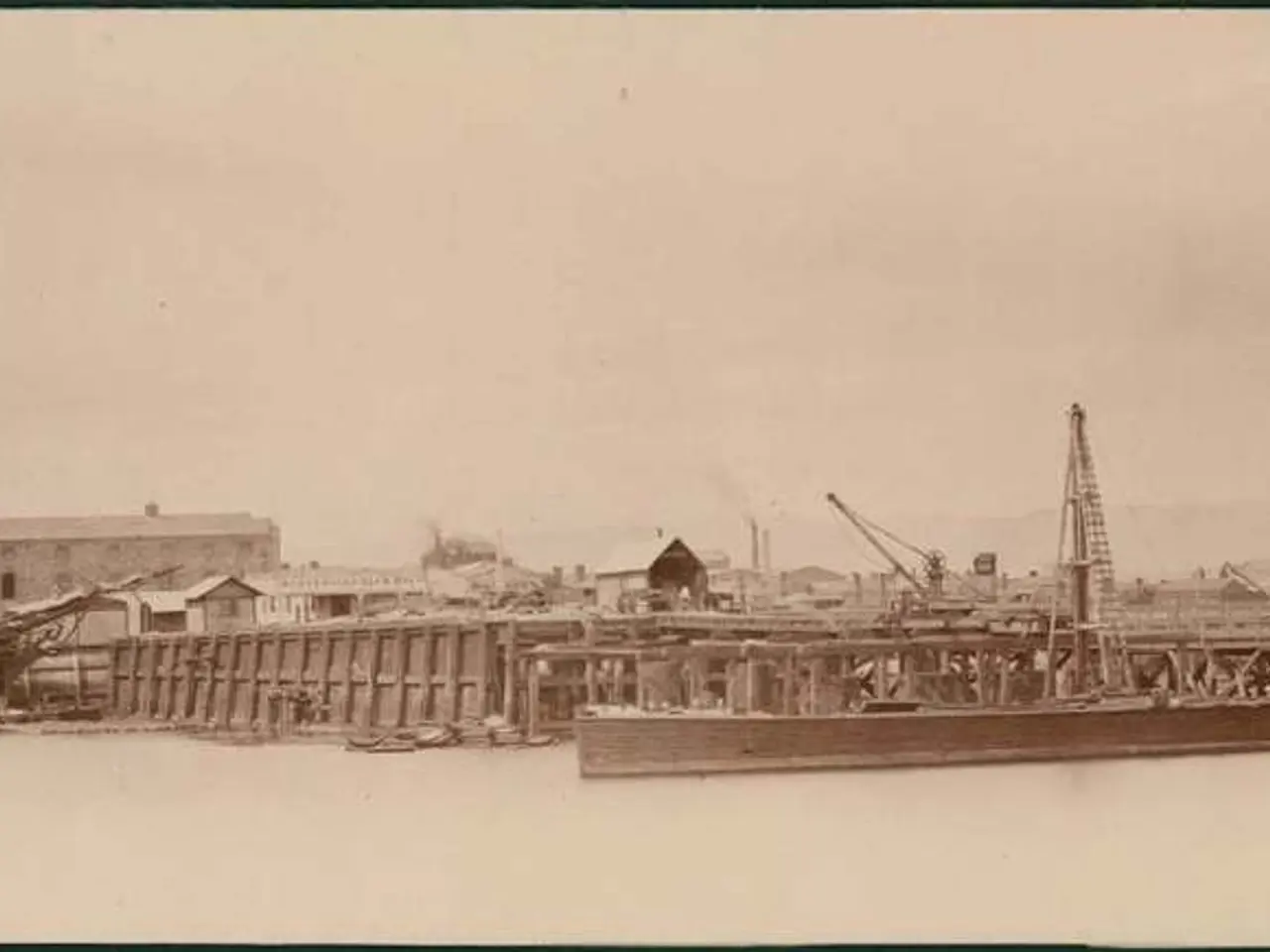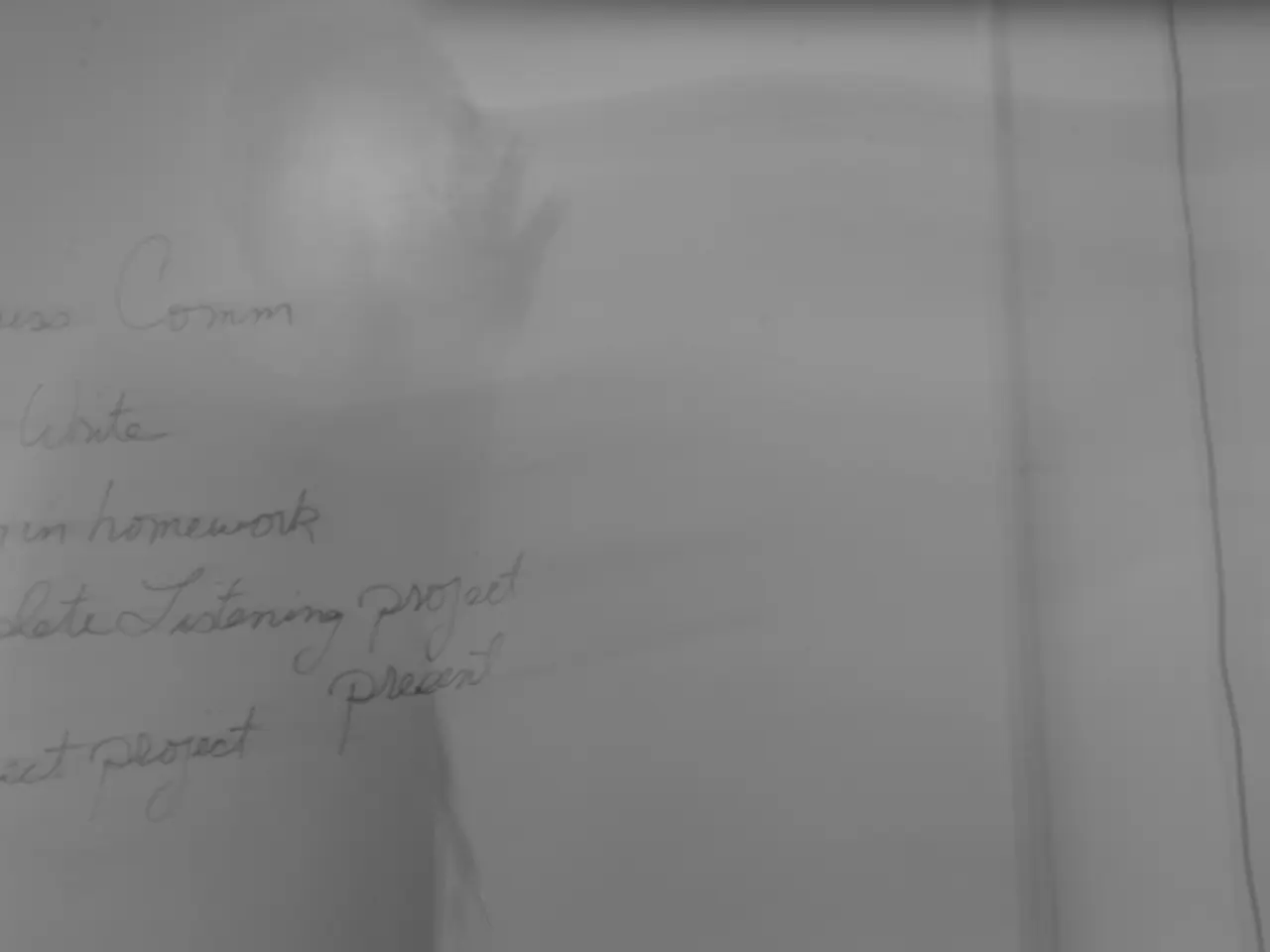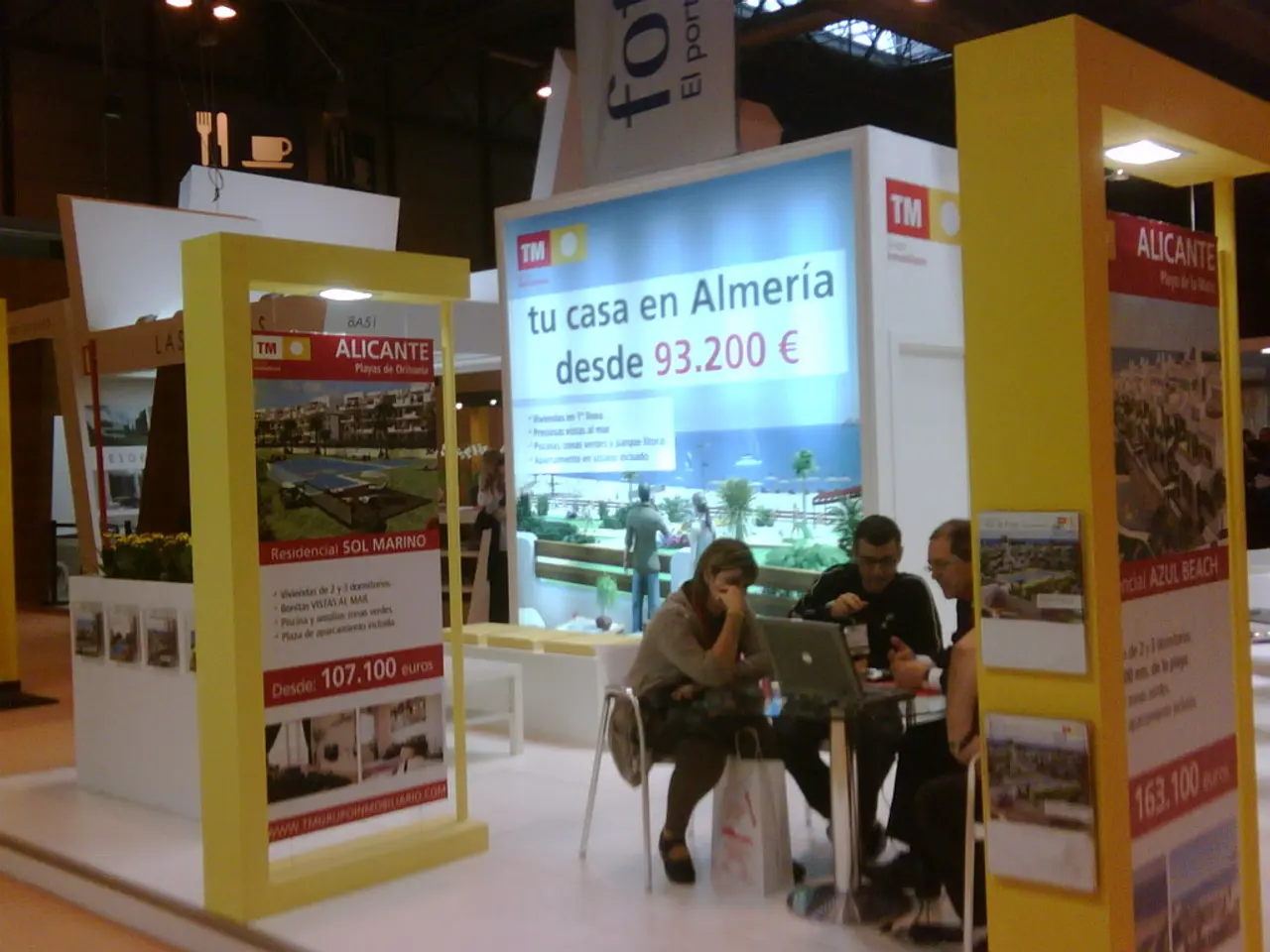Consultation Held on Proposed Directive Safeguarding Workers from Radiation Exposure Risks
On the Line-Up in Brussels: Notable CEOs and NRW Minister President Hendrik Wüst (CDU) set for talk with EU Commission President Ursula von der Leyen
Next Wednesday (July 2nd), an influential ensemble—CEOs of Eon, Henkel, Evonik, Uniper, Thyssenkrupp, DHL, Rheinmetall, Hochtief, Rewe, Lufthansa, Covestro, Lanxess, and NRW's own Minister President, Hendrik Wüst—will lock horns with EU Commission President Ursula von der Leyen in Brussels.
These bigwigs have gathered to tackle the intricate labyrinth of challenges and opportunities for Europe's economy, focusing primarily on powerhouses from North Rhine-Westphalia.
Previous reports from the NRW State Chancellery affirm the impending gathering. These titans of industry represent a collective turnover of around 500 billion euros and a workforce of nearly 1.5 million employees.
A Lockdown on Industrial Growth?
Germany, Europe's industrial titan, and NRW, its economic nerve center, are undergoing abrupt global developments that may necessitate a tough course of action. The European and American economies are hanging in the balance, making this a critical time for deep discussions.
Minister President Wüst has recently urged for an open dialogue with the top of the EU, citing the necessity to protect industries integral to NRW from what he fears could be "deindustrialization."
The EU-US Trade Blowout
Trade negotiations between the US and EU are teetering on a precipice. President Trump has paused rising tariffs on 90% of EU imports, giving them a temporary reprieve until July 9th. However, Trump has also hinted at hefty tariffs of 50% on EU imports if no agreement is reached. This change could adversely impact key industries in NRW, such as automotive, machinery, and chemicals.
Due to critical industries dependent on these exports, Federal Chancellor Friedrich Merz (CDU) has appealed for expedited negotiations. He wants crucial German sectors like automotive, mechanical engineering, and chemicals to secure relief before it's too late.
A Balancing Act with Geopolitical Ramifications
The EU grapples with the complications of maintaining a delicate power equilibrium with the US amid the ongoing talks. The European Commission faces resistance from some member states for a complex, sluggish negotiation approach. This internal friction could present challenges for NRW businesses reliant on stable, clear trade rules.
Beyond the looming deadlines, the EU faces a potential imposition of retaliatory tariffs from the US on sectors including automobiles and industrial machinery, further complicating matters for NRW companies.
Future Focus: Navigating the Trade Tangle
Despite the uncertainty, the ongoing dialogue allows for the possibility of a long-term and balanced trade framework. Leveraging NRW's industrial strength, a careful approach to diversifying markets, and proactive engagement in EU trade policy discussions may present a silver lining for companies faced with these challenges.
In the grand spectacle of international trade politics, the meeting of the minds in Brussels will be a crucial step in shaping the future for NRW and European businesses alike.
- The gathering of CEOs from significant businesses in North Rhine-Westphalia, along with NRW Minister President Hendrik Wüst, will discuss the intricate issues surrounding the European economy, including potential threats to industrial growth and the EU-US trade standoff.
- As the EU Commission President Ursula von der Leyen engages in talks with these CEOs, they aim to advocate for the protection of industries vital to NRW, particularly those in sectors like automotive, machinery, and chemicals, that may be affected by the ongoing trade negotiations between the US and EU.
- During the talks in Brussels, it will be essential for the European Commission to navigate the complexities of maintain a balanced power equilibrium with the US, while addressing internal friction among member states and ensuring clear, stable trade rules for NRW businesses, which may face retaliatory tariffs from the US on sectors including automobiles and industrial machinery.




